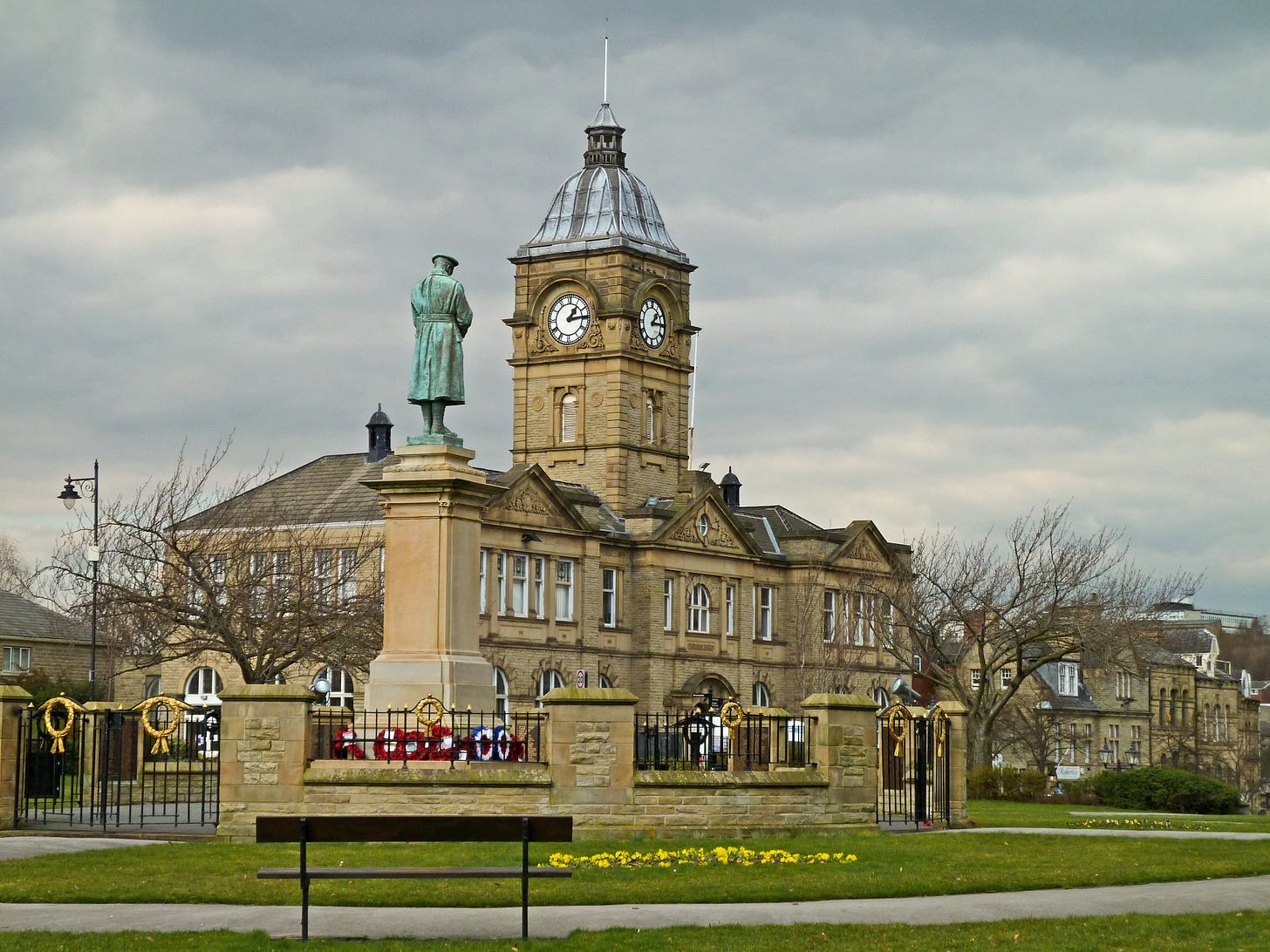Hubris on West Yorkshire
A superforecast would choose Labour as the likelier victor in the Batley and Spen by-election
I’d like to say my stint at Local Government Chronicle gave me a detailed understanding of the British political landscape, able to name every electoral boundary in the country. Alas, like many London pundits my knowledge is patchy.
I can’t therefore say that I bring any local knowledge to the Batley and Spen by-election taking place tomorrow. The constituency was made notable as the seat of Jo Cox when she was stabbed and shot to death by Thomas Mair. Cox’s successor, Tracy Brabin, recently left to become West Yorkshire mayor, triggering the election.
Despite widespread ignorance of the area, Batley and Spen is seen as another – yes, another – key test for Keir Starmer. Labour’s leader was widely blamed for the loss of Hartlepool in May, with the party’s poor showing in Chesham and Amersham also counting against ‘Keith’ – to use the hard left’s nickname for him.

Various groups are talking up the prospect of a leadership challenge. This is partly because some of his party don’t like him. It’s also because the Corbynites want another go at crashing the bus. But mostly the resulting #drama would keep journos entertained for weeks.
Labour’s last attempt to topple its leader was so successful that Jeremy Corbyn led the party into two general elections afterwards. Were Starmer to go, he would be the third-shortest tenured Labour leader in history (assuming you count Arthur Henderson’s three periods separately).
On the basis of precedent it therefore doesn’t look that likely that Starmer will go this early. And this brings me to the topic of ‘superforecasting’.
Superforecasting is the work of academic Philip Tetlock, who wrote a book on the subject in 2015. Tetlock has spent years testing pundits’ predictions by asking them to assign firm probabilities to specific events. So instead of saying “it looks likely” that Starmer will be forced out, you’d say that there’s a 60% chance that Starmer will have resigned as Labour leader by the year’s end.
Tetlock found that the best forecasters were rarely subject specialists in the topic they were forecasting around (indeed, expert pundits were often little better at telling the future than dart-throwing chimps). The must successful predictors were instead those who worked out broad ‘base rates’ showing the likelihood of a type of event in general, and then made minor adjustments based on the conditions of a specific instance.
To take an obvious one: what is the likelihood of Labour winning the Batley and Spen by-election? A pundit would be tempted to go to the polls first, and would find that a recent Survation poll gave the Conservatives 47%, ahead of Labour’s 41%.
A superforecaster would go to find the base rate. There are several questions one could ask to get one, but I’ve chosen: What percentage of incumbent parties have retained their seat in a by-election since 1945? Based on election data from Wikipedia – not entirely reliable – the answer is around 80%.
These are nonetheless encouraging numbers for Labour’s Kim Leadbeater, who is running for her sister Cox’s old seat. Bolstering the case further, in the roughly one hundred cases where seats have changed hands in a post-war by-election, they have only gone to the sitting government around eight times (again based on my loose counting).
Put another way, the base rate for a sitting government winning a by-election seat from another party is around 2%. This is pretty unlikely, but such events happen one in every 50 times.
Looking less good for Labour is the party’s recent polling performance, notably evinced by the loss of Hartlepool to the Tories. There is also that Survation poll, and the threat posed by professional gobshite George Galloway, who alongside Labour has contributed to some questionable courting of the Muslim vote.
These factors have convinced many that Labour will lose the seat. You can see it in the betting market, which gives Labour an implied probability of winning of roughly 20%. The Tories, meanwhile, are frequently given implied probabilities of 80-85% of winning. Galloway is on 2-7%.
Such odds are reflective of what bets are being made rather than the bookies’ pure view of how likely such events are. Brian Rose, a shifty YouTuber and London mayoral candidate, is believed to have bet on himself to make his odds of winning look better.
My suspicion is that Labour is much more likely to hold the seat than what the market thinks. Even given Labour’s woes, I’d guess they have a 70% of holding the seat (which still gives them a 30% of losing it).
This is not what Labour is telling voters, with “senior figures” briefing the Guardian that Leadbeater’s odds are 5-10%. Based on what is not clear. Don’t expect superforecasting to take hold in Westminster or West Yorkshire anytime soon.



